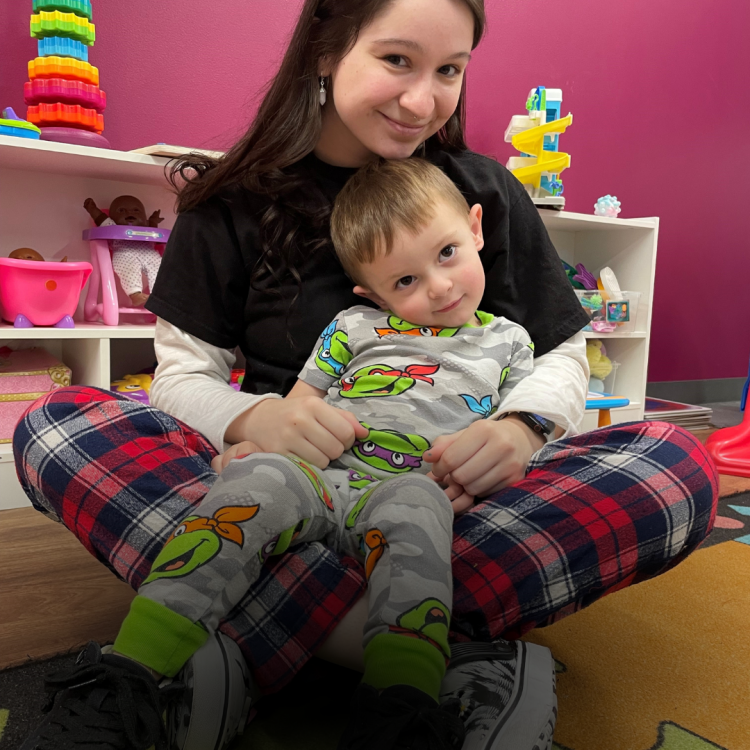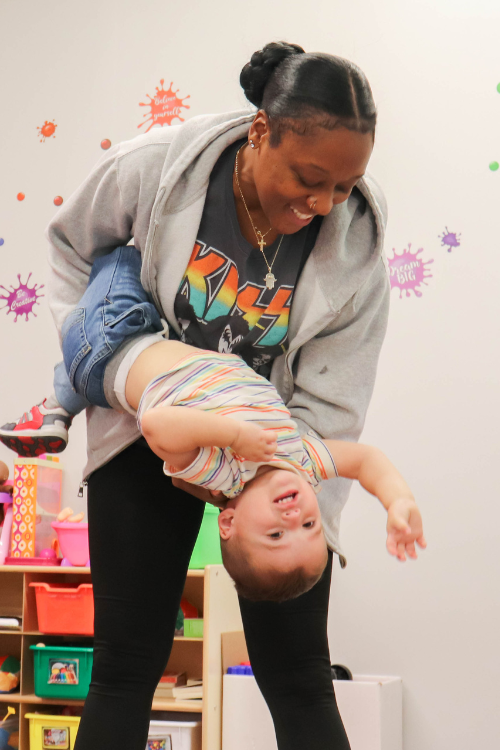Everything You Need to Know About a BCBA Career
Learn More about Starting in a BCBA Career
A BCBA evaluates the needs of a child with autism and designs a personalized treatment program to help their learning, communication, socialization, and other everyday skills. Consider a BCBA the head clinician of a child’s autism treatment program. They work with behavior therapists, parents, and teachers to maximize each child’s development.
- Average Salary: $75,000 to $100,000 per year based on location, education, and experience.
- Required Education:
- Masters Degree in a related field
- Supervision Hours in the field
- Pass the BCBA Exam to become certified by the BACB
- Required Skills:
- Assessing and Analyzing Behavior – Helps to identify the causes and triggers of problematic behaviors, which is translated to create an autism treatment plan.
- Data Collection and Interpretation – Crucial for measuring a child’s progress to make data-driven decisions for modifying a treatment plan to best achieve a child’s goals.
- Leadership of Care Teams– Provides supervision to the clinical team, who implements behavior plans. This includes involvement in training and supporting staff before, during, and after treatment sessions.
- Opportunity: Demand for BCBAs is high, especially in autism treatment. At Helping Hands Family, BCBAs can advance to the following roles:
Lead BCBAs – Senior clinicians responsible for training and overseeing newer BCBA or RBTs.
Clinic Directors – Professionals with leadership experience that oversee all clinical operations.
- Impact: A BCBA role is a fulfilling career because of the ability positive impact each child you work with, to developing their an autism treatment plan to help them learn new skills and improve their quality of life.


How to Advance from RBT to BCBA
Many RBTs progress their careers by becoming a BCBA. Working as an RBT can be a valuable springboard to advancing to a BCBA. Also, if you work for an employer that offers a BCBA Fellowship Program for RBTs, like Helping Hands Family, advancing is more streamlined and convenient.
Below are the specific eligibility requirements you need to become a BCBA.
![]() Earn a bachelor’s degree from an accredited institution in any field. Popular majors include:
Earn a bachelor’s degree from an accredited institution in any field. Popular majors include:
- Behavior Analysis
- Psychology
- Education
![]() Complete coursework hours in ABA, through a doctoral program, master’s program, or approved courses. This is around 270 classroom hours. The HHF Fellowship program provides tools and university partnerships to make this step easier and more affordable.
Complete coursework hours in ABA, through a doctoral program, master’s program, or approved courses. This is around 270 classroom hours. The HHF Fellowship program provides tools and university partnerships to make this step easier and more affordable.
![]() Accumulate supervised fieldwork experience. Our Fellowship program pays you for 70% of your supervision hours and offers valuable mentorship through the process. Your experience as an RBT also allows you to hit the ground running!
Accumulate supervised fieldwork experience. Our Fellowship program pays you for 70% of your supervision hours and offers valuable mentorship through the process. Your experience as an RBT also allows you to hit the ground running!
What are the Benefits of Being a BCBA ?
An obvious benefit of being a BCBA is that you can help children with autism reach their highest potential. BCBAs develop treatment plans that use strategies and interventions designed to encourage positive changes. But there are other benefits to being a BCBA as well:

High Demand for this Role
There is a high demand for BCBAs in autism services. This high demand provides job security, unlocks career opportunities, and increases average salaries.
Competitive Salary
Not only do BCBA positions command competitive salaries, but experience and specialization increase earning potential as you continue in the career path.


Professional Growth
Becoming a BCBA involves rigorous training and education, which leads professional growth. BCBA training helps individuals acquire valuable skills in behavior analysis, problem-solving, and communication.
Educational Advancement
The evolving nature of the behavior science field allows BCBAs continue their professional development and enjoy continuous education. One example is CTU courses that are available for BCBAs to complete.


Research Opportunities
BCBA professionals may have the chance to engage in research activities, contributing to the field’s knowledge base, helping to improve best practices, and even leading to publication.
Career Advancement
As you gain BCBA experience, you can pursue various career paths and advance to leadership roles, including becoming a clinical director, behavior science consultant, or researcher.

Hear from the HHF's BCBAs
“I love working at HHF because every day is a new adventure! I have a supportive, amazing environment that I work in every day. I get to celebrate every success with my entire team.”
Sarah
HHF BCBA
“There is so much potential for growth here at HHF. Since starting, every person has wanted to see me succeed in my field and grow in my position”
Kim
HHF BCBA
“My favorite part is knowing that I’m making a difference in the kids’ lives. I love hearing the feedback from their parents about how the child is starting to communicate at home”
James
HHF BCBA
Why Choose HHF
At Helping Hands Family, we provide a healthy work environment and put our employees in the best situations to serve the children in our clinics. Below are reasons to choose HHF for your career growth!
- “Great Place to Work-Certified” with 94% of our employees being made to feel welcome.
- On-Site Support with on-site clinic directors and a team of RBTs that conduct the individual sessions.
- Career Growth & Learning through internal training opportunities and upward mobility opportunities to become lead BCBAs or clinical directors.

BECOME A BCBA AT A TOP RATED ABA PROVIDER!
HHF offers clinical leadership, educational opportunities, and career advancement.
